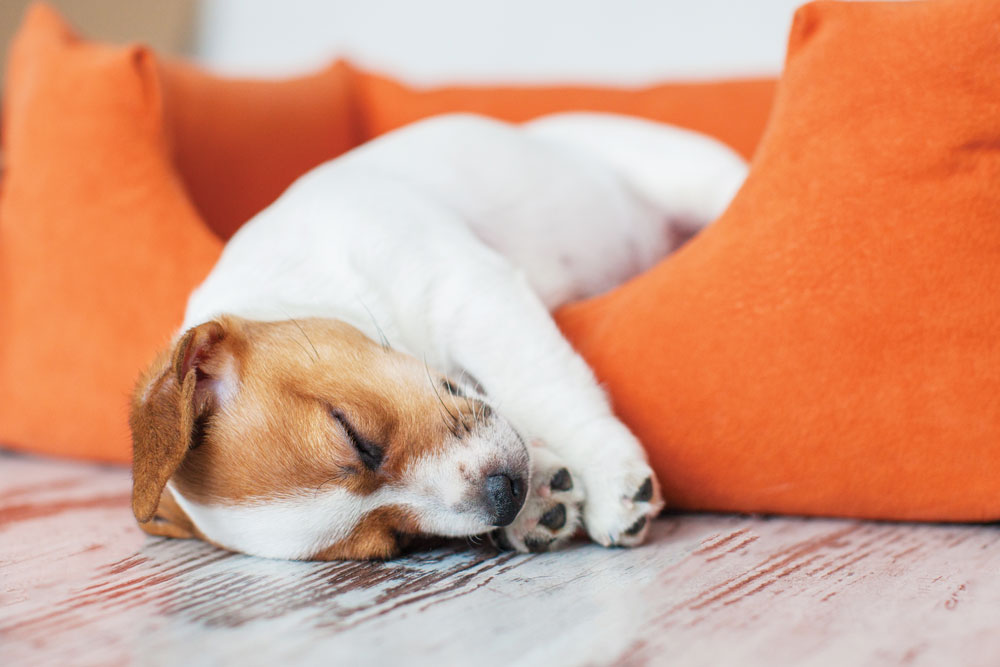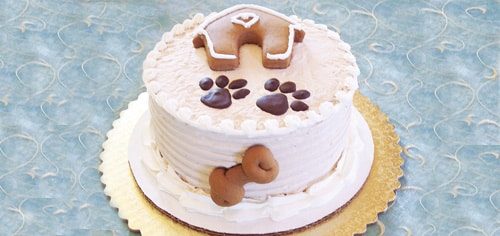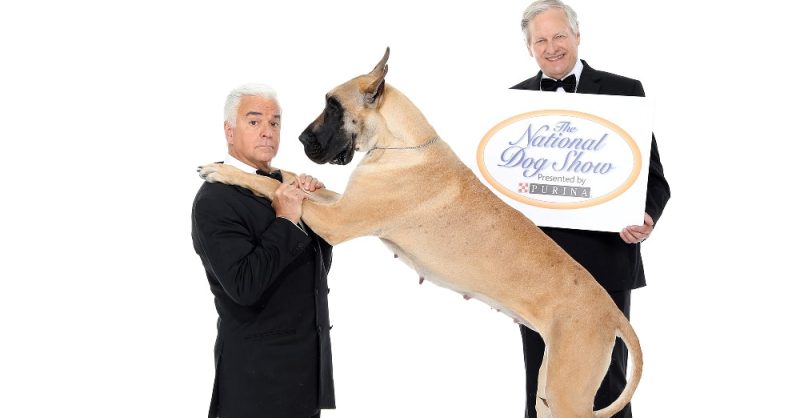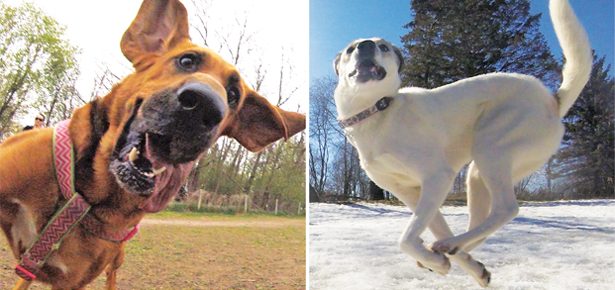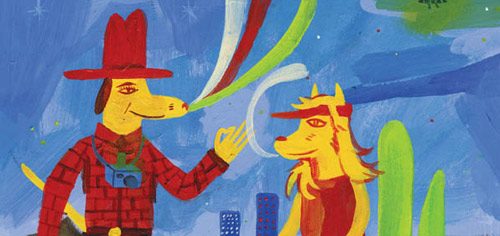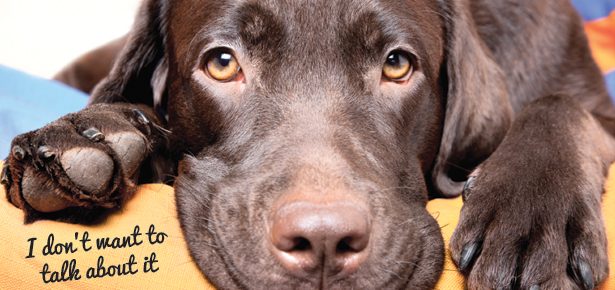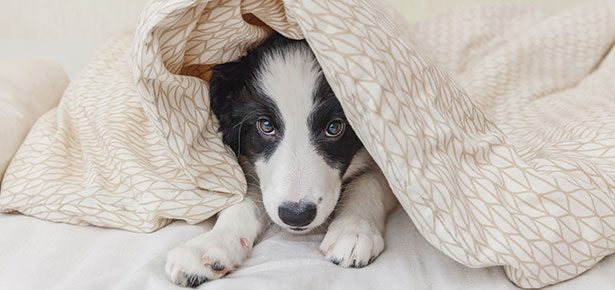
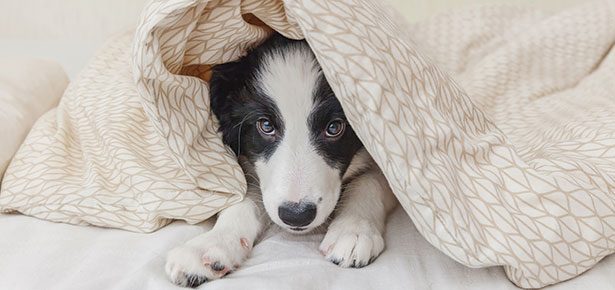
Why Does My Puppy…?
Answers to commonly Googled puppy questions, from biting and crying to chewing and more
Q Why does my puppy eat his poop?
Let’s get the most “distasteful” question out of the way first. Poop eating, also known as coprophagia, is not uncommon in puppies. There can be a variety of reasons for the behaviour including stress and anxiety, attention seeking (your pup learns that mom comes running when he starts ingesting it), and medical reasons, including nutritional deficiencies. There is also a theory that dogs do it because it’s in their DNA. As behaviourist Steven R. Lindsay says, coprophagia “…may be one of several appetitive survival behaviours that have evolved to cope with the periodic adversity of starvation.” Regardless of the reason, a vet exam can address any medical issues, and keeping your yard as clean as possible can help with the rest.
Q Why does my puppy bite me so much?
Greetings, human pin cushions! I feel your pain. No one likes being on the receiving end of little sharklike puppy teeth, but it can help to understand why your pup is behaving this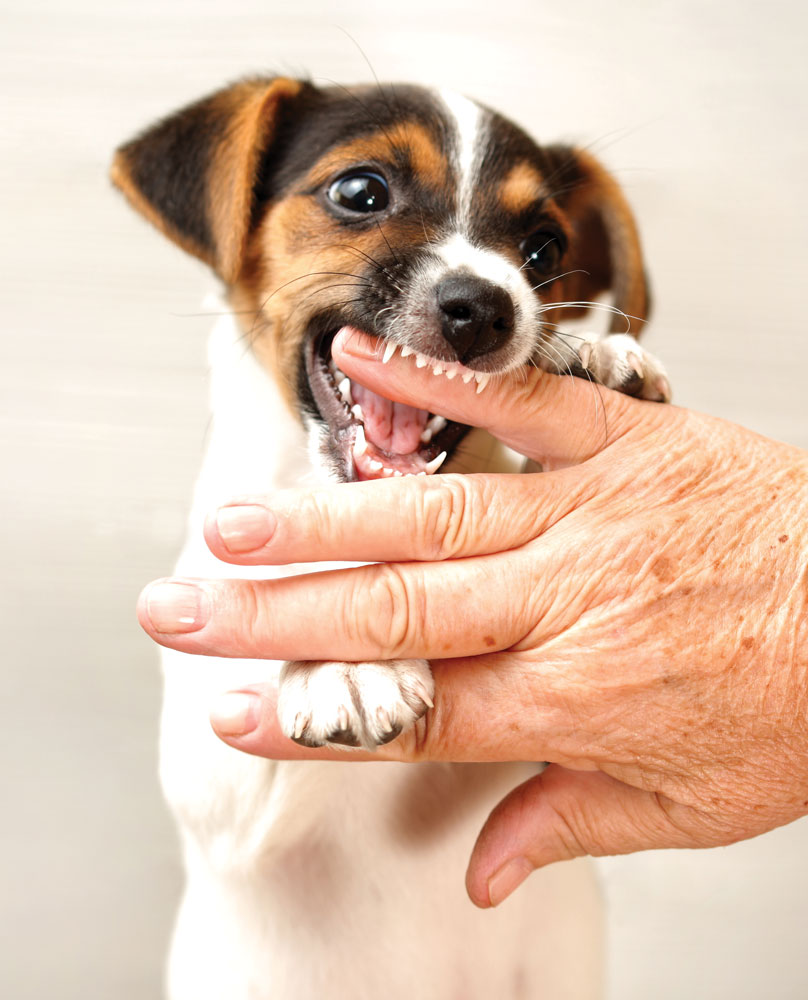
Photo LuboIvanko/bigstock.com
Q Why does my puppy cry at night?
If it is very soon after you brought your puppy home, he may be crying because he is away from his mom, littermates, and everything he knows. If you crate your pup at night, he may be crying to let you know he has to go potty. Dogs have an instinct not to 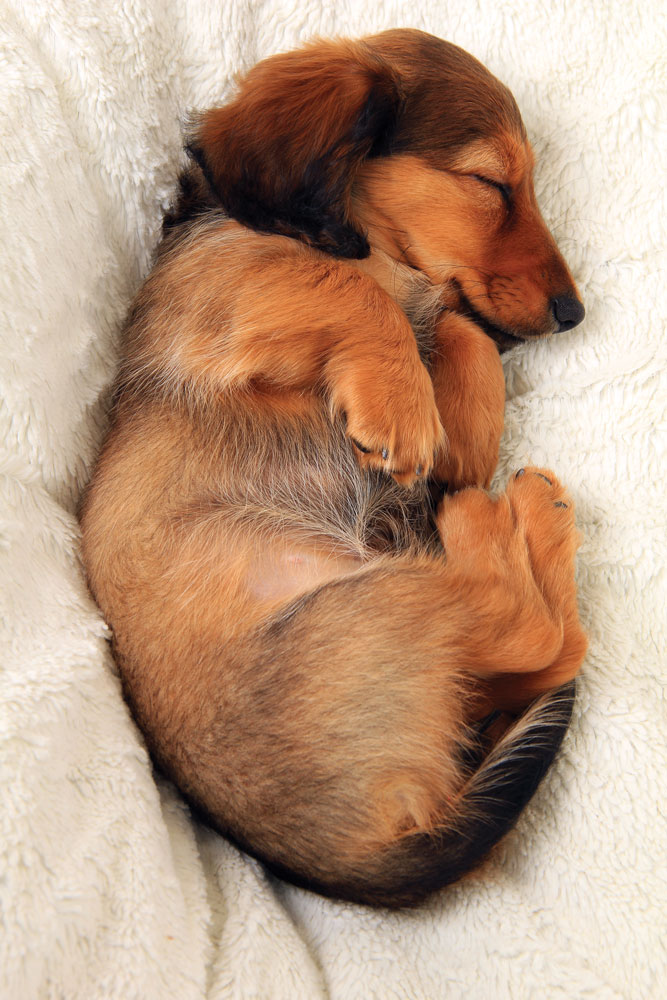
Photo Hannamariah/bigstock.com
Q Why does my puppy sleep so much?
Healthy growth requires quite a bit of sleep, and puppies are growing both physically and mentally. Although it may seem excessive to us, puppies sleep a lot, just like human infants. Experts agree that it is absolutely normal for a young puppy to sleep even 18 to 20 hours a day! When they’re awake, those bursts of the “zoomies” require a lot of energy expenditure, muscle, and brainpower. Racing around and around and then collapsing into an immediate nap are par for the puppy course and are not anything to worry about; so long as your pup is otherwise healthy and is alert when awake, it’s perfectly normal. Being awake for only four hours a day may seem strange, but it simply means your pup is giving his body the rest it needs for healthy growth.
Photo TatyanaGl/bigstock.com
Q Why does my puppy get the hiccups?
People sometimes wonder whether dogs can get hiccups. Well, they can! Just like in humans, a spasm in the diaphragm causes the opening between the vocal cords (the glottis) to close abruptly, causing that distinctive hiccupping sound. Puppies may get hiccups when they eat or drink too fast, when they’re very excited, or even when they get cold. There is also a theory that hiccups might be your puppy’s way of relieving gas or an upset stomach. If hiccups do not subside within a few hours or change into a wheezing sound, take your dog to the vet. The good news is that hiccups are less common in adult dogs, so with a bit of time and growth, your puppy should hiccup less often.
Q Why does my puppy chew his paws?
It is not abnormal for a puppy to chew on his paws from time to time, whether to groom himself or because pups tend to teethe on just about anything! But if your puppy chews on his paws often, the first thing to consider is whether he might have a skin allergy. He could be allergic to an ingredient in his food or treats, grass, a chemical used to clean your carpets, or a variety of other things. More obvious reasons puppies lick their feet is because something irritating is stuck between the toes, or because a paw is hurting. But 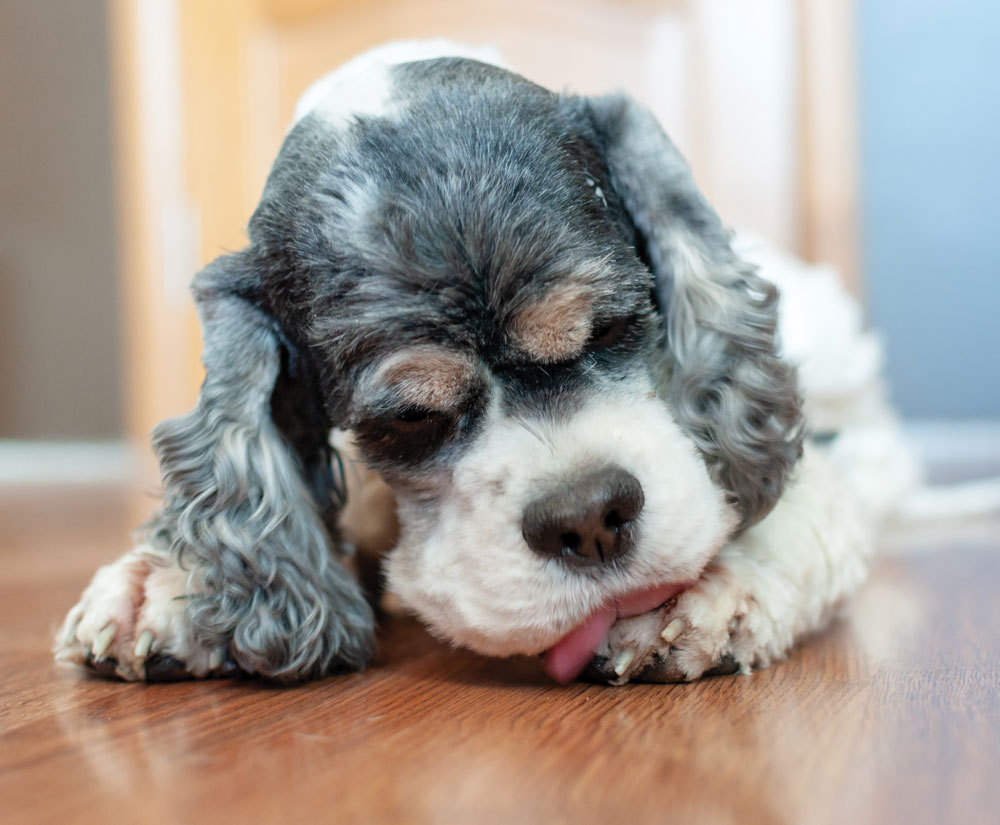
Photo LexImages/bigstock.com
This article originally appeared in the award-winning Modern Dog magazine. Subscribe today!
Join the newsletter and never miss out on dog content again!
"*" indicates required fields
By clicking the arrow, you agree to our web Terms of Use and Privacy & Cookie Policy. Easy unsubscribe links are provided in every email.
